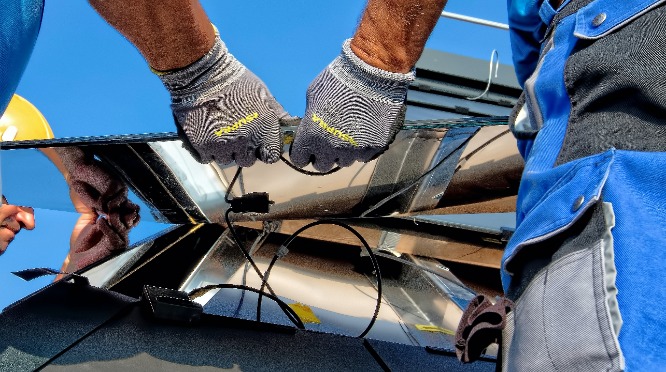Supercharge your talent hiring. For our top tier clientele, we recommend this search option to achieve your toughest hiring requirements. Supercharge your talent hiring...
World EV Day 2025: Can infrastructure keep up with EV growth?


World EV Day, held each year on 9 September, is a global celebration of electric mobility, raising awareness of the benefits of EVs and the progress being made towards a cleaner transport future. This year, the conversation is louder than ever. In 2025, electric vehicles (EVs) have reached a tipping point, making up one in five cars sold worldwide, a milestone worth celebrating, but also a moment to pause and ask a critical question: as adoption accelerates, can infrastructure keep up?
To explore this, we spoke with Alisha Michaels, Principal Consultant with a focus on E-Mobility, who partners with companies and talent across the EV ecosystem every day.
The acceleration of EV adoption
According to the International Energy Agency (IEA), global EV sales passed 14 million in 2023, a 35% increase year-on-year that underlined the pace of change across the transport sector. That momentum has continued, with EVs expected to reach over 20% of new car sales worldwide in 2025, firmly establishing electric mobility as a mainstream choice rather than a niche alternative.
This growth, however, is uneven across regions. According to the IEA, China continues to dominate, accounting for more than 60% of global EV sales, supported by strong domestic manufacturing and government incentives. Europe remains a major force, with almost one in four new cars now electric, while in the United States, adoption has doubled since 2021, with EVs making up around 10% of sales today. Together, these regions are reshaping the automotive landscape and accelerating the global transition to clean mobility.
But as adoption accelerates, the pressure on infrastructure is becoming impossible to ignore. By the end of 2023, there were just over 3 million public charging points worldwide, a figure that the IEA warns must quadruple by 2035 if it is to keep pace with consumer demand. What was once framed as “range anxiety”, concerns about how far an EV could travel on a single charge, has now evolved into “charging anxiety”, where drivers worry less about battery life and more about whether charging points will be available when they are needed.
As Alisha observes, “range anxiety is still a real thing, with a barrier to convenient and reliable charging infrastructure, especially in more rural areas. L3 chargers are being deployed more rapidly, but integration with the grid is still a challenge.”
Innovation needs people to power it
Solutions are already emerging. Smarter charging networks are balancing demand, vehicle-to-grid (V2G) technology is showing how EVs can double up as mobile batteries, and new methods are making charging faster and easier than ever. These innovations prove that EVs are changing how we generate, store, and use energy.
But delivering these systems depends on people, and the right skills are in high demand. As Alisha explains: “On the engineering side, anyone who has a combination of software, hardware and grid integration experience, plus exposure to AI. For sales folks, Account Managers with strong L2 and L3 backgrounds that can sell into utilities. There’s also been a massive uptake in construction-centric roles with hardware developers and charging network operators.”
Looking ahead
World EV Day 2025 is a moment to celebrate progress while keeping sight of the challenges still ahead. EVs are no longer a future technology, they’re here and they’re growing fast. The real test now lies in whether the infrastructure can scale quickly enough to keep momentum.
For companies building that infrastructure, Alisha emphasises that customer experience must come first: “Convenience and reliability are factors that either make or break a company in the EV infrastructure space. Customers want app integration, real-time availability updates and an easy payment experience. Infrastructure also needs to be scalable and future-proof, with higher voltage charging, V2G capabilities and smart grid integration built in from the start.”
The next chapter of this transition won’t be defined by vehicles alone, but by the systems that power them, and the people who make those systems a reality. At Piper Maddox, we’re proud to connect world-changing companies with the talent they need, helping close the gap between adoption and infrastructure and moving the world closer to a cleaner, more sustainable future.
Want to help shape the future? View our latest jobs now.
Some more good reads
Looking for your next clean energy role?




































